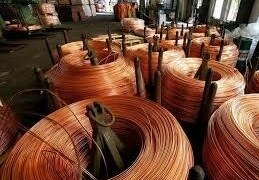 © Reuters. Pumpjacks are seen against the setting sun at the Daqing oil field in Heilongjiang
© Reuters. Pumpjacks are seen against the setting sun at the Daqing oil field in HeilongjiangBy Henning Gloystein
SINGAPORE (Reuters) – Oil prices fell on Monday after U.S. energy firms added rigs for the first time this year in a sign that crude production there will rise further.
U.S. spot crude oil futures () were at $53.37 per barrel at 0027 GMT, down 32 cents, or 0.6 percent, from their last settlement.
International Brent crude oil futures () were at $61.37 a barrel, down 27 cents, or 0.4 percent.
Analysts said high U.S. crude oil production, which hit a record 11.9 million barrels per day (bpd) late last year, was weighing on oil markets. [C-OUT-T-EIA]
In a sign that output could rise further, U.S. energy firms last week raised the number of rigs looking for new oil for the first time in 2019, adding 10 facilities, to 862, Baker Hughes energy services firm said in its weekly report on Friday.
Beyond oil supply, a key question for this year will be demand-growth.
Oil consumption has been increasing steadily, likely averaging above 100 million bpd for this first time in 2019, driven largely by a boom in China.
However, an economic slowdown amid a trade dispute between Washington and Beijing is also weighing on fuel demand-growth expectations.
China, which recorded the slowest pace of economic growth since 1990 last year, is trying to stem the slowdown with aggressive fiscal stimulus measures.
But there are concerns that these measures may not have the full desired effect as China’s economy is already laden with massive debt and some of the bigger government spending measures are seen to be of little real use.
High supply and an economic slowdown are weighing on the oil price outlook.
“We expect U.S. crude oil prices to range between $50-$60 per barrel in 2019 and about $10 more per barrel for Brent,” Tortoise Capital Advisors said in its 2019 oil market outlook.
However, Tortoise added that oil prices would be supported above $50 per barrel as it was “very clear that Saudi Arabia will no longer be willing to accept these lower oil prices”.
The Organization of the Petroleum Exporting Countries (OPEC), de-facto led by Saudi Arabia, started supply cuts late last year to tighten markets and buoy prices.
Fusion Media or anyone involved with Fusion Media will not accept any liability for loss or damage as a result of reliance on the information including data, quotes, charts and buy/sell signals contained within this website. Please be fully informed regarding the risks and costs associated with trading the financial markets, it is one of the riskiest investment forms possible.
Source: Investing.com





























